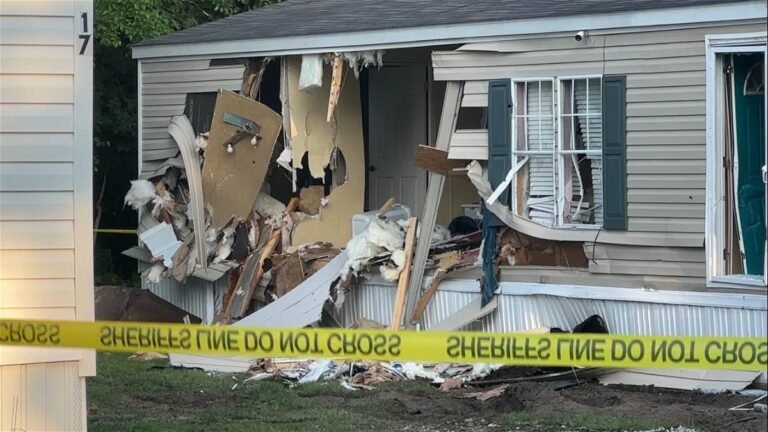Columbia, Missouri (KMIZ)
Police responded to two deadly standoffs in three days last week, and one officer said such tense situations back-to-back can be physically and mentally exhausting.
On June 4, a standoff at a mobile home park in Sturgeon left Damion Linder dead.
And a standoff two days later at Columbia Links ended in the death of a man who police have yet to identify.
Columbia Police and Missouri State Highway Patrol responded to both scenes, while the Boone County Sheriff’s Office, Sturgeon Police and Hallsville Police were also at the scene in Sturgeon.
Matt Nichols, president of the Columbia Police Officers Association, said the incident was exacerbated by the fact that it happened so quickly, giving responding SWAT officers no time to relax.
“They’ve already worked dozens and dozens of hours or more of overtime on other (homicide) cases, and now they have to switch gears, take their coat and tie off of the interrogation, put on a 60-pound bulletproof vest and do this for seven, eight, nine, 10 hours,” Nichols said. “It’s exhausting.”
Laird Thompson, a chaplain at Columbia Psychotherapy Center, said large-scale incidents like last week’s require emergency personnel to take personal time to self-care and debrief.
“They’re being pushed 100 miles an hour, 100 miles an hour, so their internal systems are on fire,” Thompson said. “So they have to take personal time to calm themselves down, self-regulate, and do a critical incident stress debrief.”
Local police departments offer mental health resources to their officers: The Chicago Police Department has a colleague support program and an employee support program through the city, spokeswoman Jenny Hopper said.
Sergeant Kyle Green said the Missouri State Highway Patrol has a peer support team for all its officers. He said about 200 people have been in contact with the peer support team so far in 2024.
In addition, MSHP also offers Post-Critical Incident Seminars, which Green said “provide valuable training to first responders on how trauma affects the human psyche and changes their worldview,” with 11 seminars conducted since 2019.
The Highway Patrol has partnered with Cordico to provide 24/7 access to mental and behavioral health services, as well as an Employee Assistance Program.
Capt. Brian Lehr said the Boone County Sheriff’s Office offers mental health debriefings and two employee assistance programs after major incidents. Anyone who takes time off work after a major incident is scheduled for a one-on-one meeting with a mental health professional before returning to work.
The sheriff’s office also requires deputies to undergo mental health screenings with a medical provider every three years.
Nichols said she has sought help before, and while she thinks the Chicago Police Department is good at providing resources, there is still a stigma surrounding mental health and emergency medical personnel.
“There’s kind of a belief that, ‘People call us for help, we don’t ask for help,'” Nichols said. “So I don’t know if any (resources) will be enough.”
Nichols serves on the board of directors for another community resource, First Responder Support, a nonprofit founded in 2022 that provides support to all 600-700 first responders in Boone County.
He said there were no preconditions for rescuers to receive help.
Rick Lowden, a spokesman for First Responder Support, said the nonprofit aims to build goodwill in the community and provide education, as well as provide support to first responders, who can also apply for scholarships to receive funding to receive mental health assistance.
“They’re losing so much of themselves just fighting on our behalf,” Rowden said, “so it’s crucial that we do everything we can to provide resources so they can find the help they need.”
According to data from the National Institutes of Health, more than 80% of emergency medical personnel experience a traumatic situation while on the job.
Nichols said emergency medical personnel are human too and unfortunately often bring those situations home with them.
“We’re normal people. We have kids. We have grandkids. We coach Little League. We go bowling. We’re just like any other Columbia resident,” Nichols said. “We just have a lot of really nasty, ugly things that we have to deal with that we can’t leave behind at work.”
Resources available to emergency responders include:


